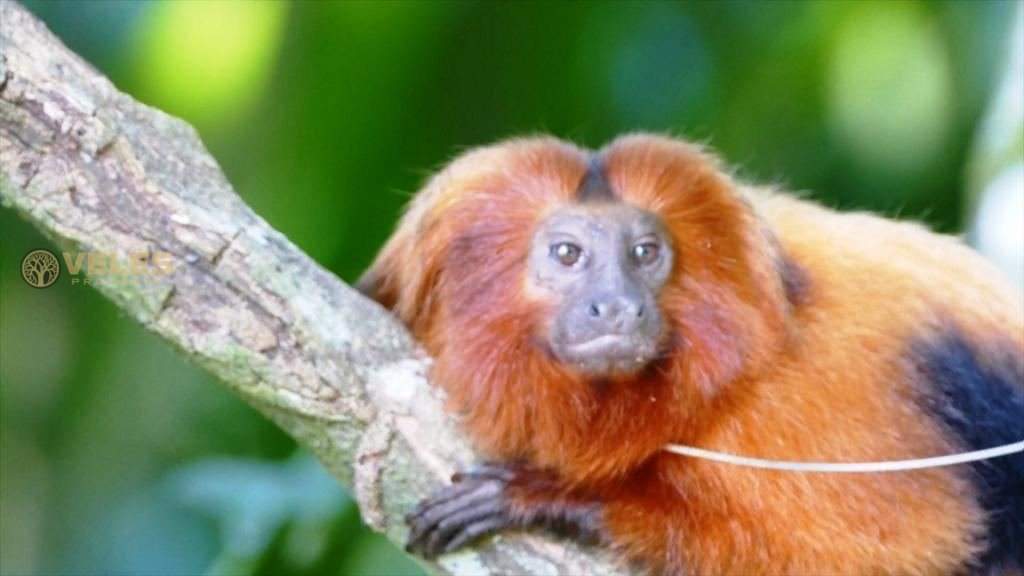The giant cariniana, towering above the canopies of neighboring trees, is considered the symbol of the Brazilian Atlantic Forest. This one is about a thousand years old and grows in the Tres Picos National Park near the city of Cachoeiras de Macacu.
Such trees are already rare in the Atlantic Forest. That’s why tourists often come here.
The Atlantic Forest once covered a million square kilometers. Now less than a tenth of it remains. It was cut down to make way for fields and construction.
In recent years, a Brazilian non-profit organization has been restoring the local ecosystem with the help of donors. The project participants settled eight tapirs in the forest. These animals were exterminated here more than a hundred years ago. Now the population is being revived.
Experienced specialists plant dozens of tree species. The Atlantic Forest is an example of rich biodiversity.
Lion tamarins, endemic to Brazil, live 70 kilometers from the park. These monkeys almost went extinct, but the population was saved. Now there are 4,800 individuals here. Now it is necessary to grow more trees, otherwise the monkeys simply will not have enough space for a normal life.
Environmentalists from around the world are also involved in forest restoration. Last year they planted seedlings on an area of one hectare. In seven years, lion tamarins will be able to live here.
March 21 is the International Day of Forests. This year’s theme is “Forests and Innovation: New Solutions for a Better World.”




